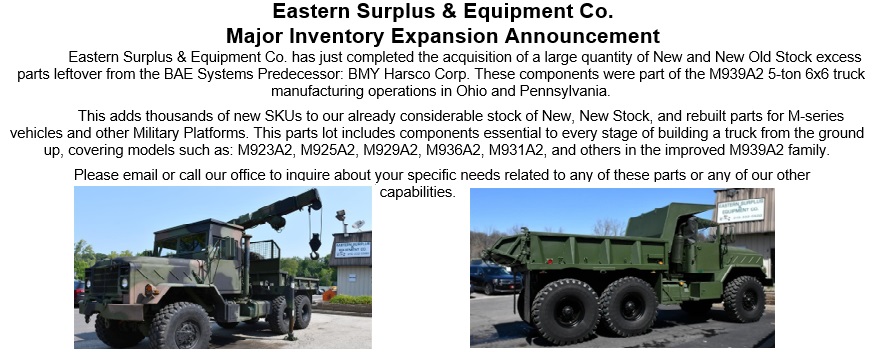pigpen60
Active member
- 681
- 127
- 43
- Location
- foley/missouri
If you lose air pressure on a m35 do you lose the brakes? Limited air over hydraulic experience.
Steel Soldiers now has a few new forums, read more about it at: New Munitions Forums!

This is a very, very true statement.That is an understatement.
I have a brake pressure dash gauge on my deuce and without the engine running (no air) I can get it up to 800psi. With the engine running (full air) I can get it up to 1600psi .This is a very, very true statement.
How much do you weigh, because even standing on them is not enough.
I've been in friend's deuce going down a steep grade about 10-20 mph, with less than 30PSI of air. He was standing on the brakes, pulling up on the steering wheel for more force. I'm surprised the steering wheel didn't break for how much it was bending. The only thing that stopped us was sacrificing the clutch and associated components.
I have a brake pressure dash gauge on my deuce and without the engine running (no air) I can get it up to 800psi. With the engine running (full air) I can get it up to 1600psi .
Kinda got what he deserves if you ask me. How long does it take to build full pressure? Maybe 3mins?I've been in friend's deuce going down a steep grade about 10-20 mph, with less than 30PSI of air. He was standing on the brakes, pulling up on the steering wheel for more force. I'm surprised the steering wheel didn't break for how much it was bending. The only thing that stopped us was sacrificing the clutch and associated components.
When the vehicle is underway?How much does the park/emerg brake help?
Yup, that's an issue. An involuntary stop is better than none...The ones where you involuntarily stop, right?
The one thing with those I've wondered is: What about the involuntary stop at an inopportune time? (freeway in rush hour, etc?)
What I'm saying is I have a brake pressure gauge on my dash. When I apply the brakes without air pressure I can only get it to go to 800psi standing on it. With the truck full of air pressure (120psi) I can get 1600psi pressure from that gauge easily. Does that mean that there is a 2 to 1 ratio ? I don't know. I can only say what my gauge is saying. I do know that it is not exponential since the piston doesn't change shape. It is and will always be the same size. Just like a hydraulic jack.I don't think the difference in pressure is a one-for-one comparison, I believe it is more exponential IMHO. I could be wrong but with air it doesn't take that much pressure on the brake pedal to stop. No air and good freaking luck and as big as I am it is darn near impossible to stop.
TM 9-1819B (page 192) states that there is a factor of 17x between the applied air pressure and the resulting hydraulic pressure.What I'm saying is I have a brake pressure gauge on my dash. When I apply the brakes without air pressure I can only get it to go to 800psi standing on it. With the truck full of air pressure (120psi) I can get 1600psi pressure from that gauge easily. Does that mean that there is a 2 to 1 ratio ? I don't know. I can only say what my gauge is saying. I do know that it is not exponential since the piston doesn't change shape. It is and will always be the same size. Just like a hydraulic jack.

